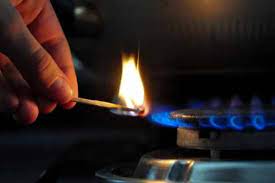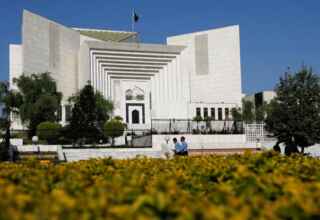
KARACHI, Mar 24v (EW): People in large part of the country faced hardships due to outages of natural gas on the first day of the holy month of Ramazan on Thursday.
Worst-hit were the Karachiites despite the government claim of uninterrupted gas supply for sehar and iftar. There was no different situation in Rawalpindi and Quetta where consumers complained of low pressure and no gas throughout the day.
An official announcement from the Sui Southern (SSGC) gave timings for what it called “gas profiling” during Ramazan. Despite assurance for gas supply at sehr and iftar time, the company cited a shortfall in its system because of a yearly 8-9 percent decline in the country’s gas reserves.
“For this purpose, to ensure better gas pressure, gas profiling will continue from 8am to 2:30pm,” the statement added.
Residents of Lyari were furious at the shortage of gas at the beginning of the holy month as some complained that they have no gas for nearly four months now.
Some residents said a 2.5kg gas cylinder costs Rs600, which lasts for nearly two weeks. It becomes difficult for low wage earners to sustain additional cost of gas as inflation has risen to unprecedented highs.
An SSGC spokesperson denied that the company had resorted to load shedding anywhere in the country, but pointed out that certain areas may face low pressure, partly because around 20 million to 20.5 million stoves are turned on at the same time of sehri.
Rawalpindi
Residents of garrison city Rawalpindi have been suffering from the same agony facing the people of Karachi. Dwellers of Dhoke Ratta said they had lodged complaints, but no steps have so far been taken to redress their grievances.
They blamed installation of CNG filling stations on an adjoining road for the low pressure, claiming that they were provided gas from the main line meant for domestic consumers.
Same is the problem in Arya Mohallah, where some residents said they have been forced to buy coal to cook sehri and iftari. They said there was no gas available even for sehri.
Officials at the SNGPL regional office said there was a gap between demand and supply as the domestic load increased three times in Ramazan.
They said domestic consumers were the priority under the special directives of the federal government and promised that the situation would improve in the coming days.
Quetta
Residents of the capital of Balochistan, Quetta, also remained without gas supply on the first day of Ramazan.
Residents of the Jinnah Road, Kasi Road, Jail Road, Jinnah Town and Model Town areas faced low gas pressure, while localities on the outskirts of the provincial capital faced complete suspension of gas on the first day of Ramazan.
There were reports of low pressure and complete suspension of gas from Pishin, Ziarat, Mastung, Kalat, Sibi, Bolan and other towns.







